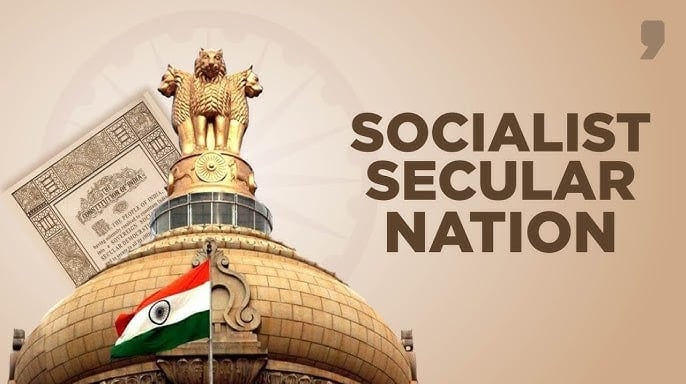How Two Words Changed the Meaning of Our Constitution: The Story of "Socialist" and "Secular" | Amal Jose P
When India’s Constitution came into effect in 1950, the Preamble—the opening lines—said that India is a “Sovereign Democratic Republic.” That was it. There was no mention of socialism or secularism. Many leaders had suggested adding those words, but Dr. B.R. Ambedkar and others felt the Constitution already had those values. They didn’t want to tie the country to any one political ideology.
POLITICS
Amal Jose P
7/7/20252 min read


Let me tell you a story—not from a book, but from our country’s history. A story about two powerful words that were not there when India was born, but later became a big part of how we define ourselves.
These two words are “Socialist” and “Secular.”
Back to the Beginning
When India’s Constitution came into effect in 1950, the Preamble—the opening lines—said that India is a “Sovereign Democratic Republic.” That was it. There was no mention of socialism or secularism.
Many leaders had suggested adding those words, but Dr. B.R. Ambedkar and others felt the Constitution already had those values. They didn’t want to tie the country to any one political ideology.
A Sudden Change
Then came 1976. India was under Emergency, a dark time in our democracy. The government had extra powers, and citizens had fewer rights. During this time, the government made many changes to the Constitution—one of them was adding the words “Socialist” and “Secular” to the Preamble.
There was no big public discussion. These two words were added quietly, during a time when most people didn’t even know it was happening.
The Courts Step In
For many years after, people asked:
Do these words really belong in our Constitution?
What do they even mean?
So the Supreme Court stepped in to explain.
In different cases over the years, the court said:
Socialist doesn’t mean that the government controls everything. It means the country should care about fairness, equal opportunities, and reducing poverty.
Secular doesn’t mean being anti-religion. It means the government should treat all religions equally and not favour any one.
In a big case called SR Bommai, the court said that secularism is not just a word—it’s a core part of our Constitution.
People Still Debate
Even today, some people say these words were added unfairly and should be removed. In fact, some political leaders have even said we should go back to the original Preamble.
But the Supreme Court recently said something very simple and powerful:
“Socialism means giving everyone a fair chance, and secularism means respecting all religions.”
So, Why Does It Matter?
These two words remind us what kind of country India wants to be:
A country where no one is left behind.
A country where everyone is free to follow their religion.
A country where equality and justice are not just dreams but goals.
They were added during a difficult time, but over the years, they’ve taken root in our laws and thinking. They are not just political ideas—they are values.
"Socialist" and "Secular" were once just two added words. But today, they are part of our nation’s story.
They remind us that India is a land of many faiths, many communities, and one dream: to move forward together, with dignity and fairness for all.